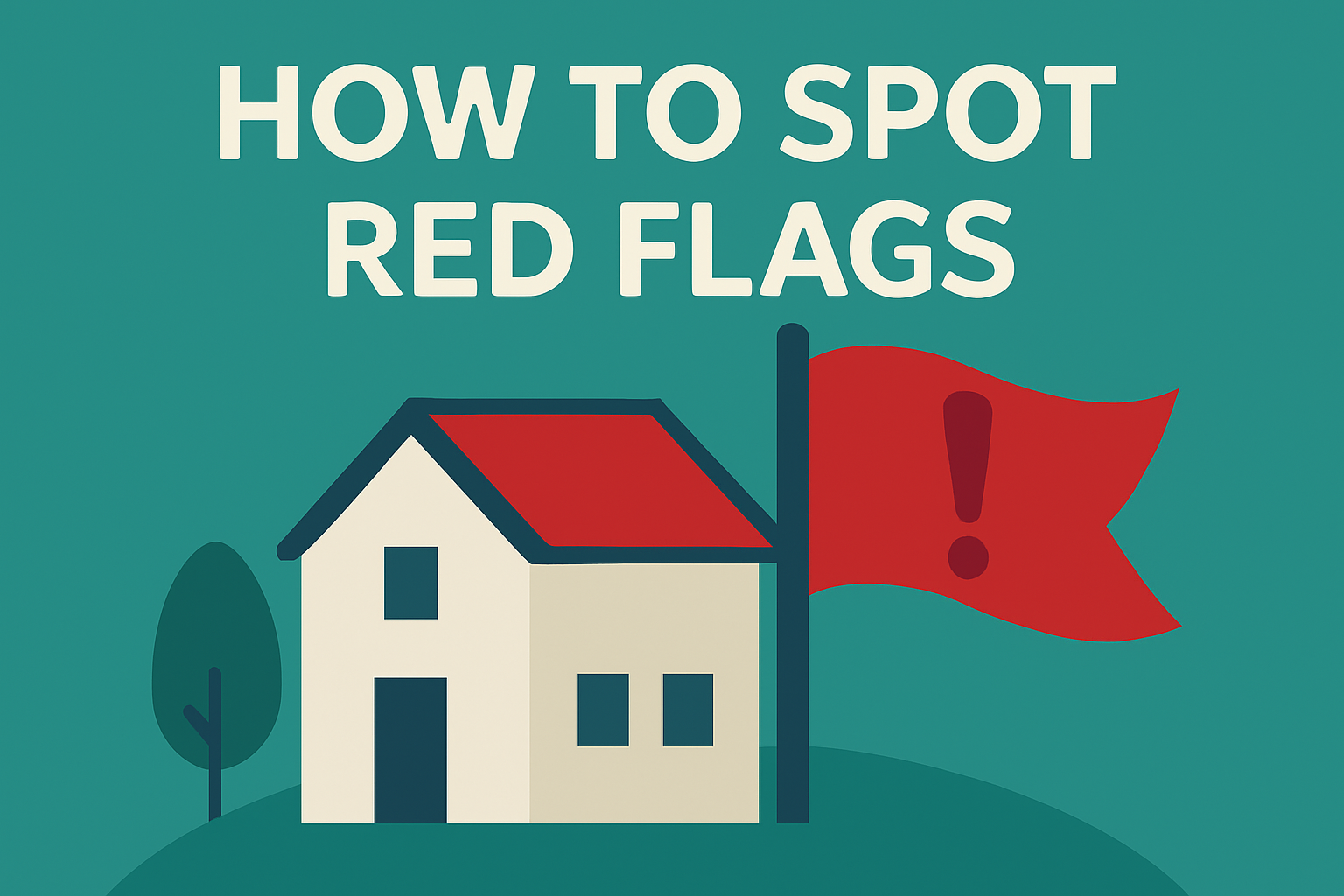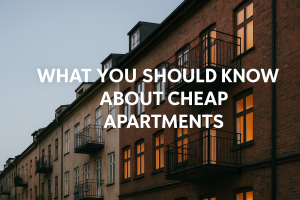Buying low-cost property abroad sounds like a dream. A house for the price of a used car or an apartment that pays itself back through rent. These deals are out there and they are real. But they also come with risks. Based on my own experience I want to share what I have learned while researching property in Germany and now in Spain. The main lesson is simple. If a deal looks too good you need to ask more questions.
Why You Should Always Do Independent Research
When looking for budget property you will often find listings that are vague or overly positive. Beautiful pictures low prices promises of easy rental income. But behind these listings there may be issues that only show up later. This is why I always recommend doing your own research. And when possible talk to an independent lawyer or a local advisor who is not tied to the seller.
Many problems with low-cost property do not appear on the surface. They are hidden in the condition of the building in the legal history or in the infrastructure around the area. If you only trust the photos and the agent’s words you may miss some important warnings.
My Search in Southern Spain
I recently started looking for property in southern Spain. The area I focused on is near Mazarron in the Murcia region. This region has many urbanisations and one of them is called Camposol. At first glance it looked promising. The prices were attractive the houses were spacious and there was a strong expat community.
But after some research I found a few things that made me think twice. These issues were not shared on the listing websites. I had to dig deeper using Google Facebook groups and even a local website dedicated to Camposol.
Through these sources I found out that parts of Camposol had dealt with past issues such as flooding weak roads and a builder who went bankrupt during construction. Some sectors were more affected than others. Although many of these problems have since been fixed or improved it was clear to me how easy it is to miss this kind of information if you do not look beyond the surface.
Red Flags Beyond Spain: What to Watch for Across Europe
In some countries like the Netherlands there is a single legal framework for the whole country. This creates clarity and consistency. In Spain and several other southern European countries the national rules exist but regional governments or provinces also set important legal and administrative standards. This can lead to differences from one region to another. In Spain for example each autonomous community may have different rules for property taxes rental licenses and renovation permits. It is important to know that what applies in Andalusia may not be the same in Murcia or Valencia. Always check local rules carefully.
Cheap property is available across many parts of Europe. From rural Italy and Bulgaria to parts of Portugal Hungary and Greece. Each region has its own challenges but many red flags are shared. Based on reports from European buyers and expat forums these are common patterns to be aware of:
Legal Uncertainty
In southern Italy and parts of Greece there are homes without full documentation. This includes unclear land titles missing permits or inherited homes that were never fully transferred. If these issues are not discovered early they can delay or cancel your purchase.
In Bulgaria some buyers report finding properties listed by agents who do not have the right to sell them. In these cases title research and legal advice are essential. The property might be involved in a dispute or already sold to someone else.
Tax and Fee Traps
In many EU countries there are taxes that are not included in the sale price. These include local council fees yearly ownership taxes and community contributions. In Portugal and France there are also inheritance rules that may affect future resale. Always ask for a full list of ongoing fees.
Non-EU Buyer Limits
Some countries restrict what kind of property foreign buyers can own. In Hungary for example non-EU citizens need government permission for rural homes. In Croatia there are limits for homes near the coast. These rules can change quickly so always check the latest legal status.
Infrastructure and Isolation
Many low-cost homes in eastern Europe or southern Italy are in remote locations. Roads may not be paved public transport is rare and hospitals or schools are hours away. This makes daily life harder and future resale more difficult. You may save money up front but lose flexibility and time later.
Local Politics and Building Delays
In some parts of Spain and Portugal local governments have frozen building permits or have conflicts with developers. This can lead to unfinished roads missing public lighting or unpaid infrastructure costs passed to new buyers. Researching the relationship between developers and the town hall can prevent surprises.
Climate and Natural Hazards
In Italy and Greece earthquake zones are more common. In central Europe some valleys and flood plains are at risk from seasonal floods. These risks are rarely listed in advertisements. You can often find this information through local civil protection sites or EU hazard maps.
Common Red Flags I Watch For
When I look at a property or a new area I now use a simple checklist in my head. These are the warning signs that I look out for:
- Too much praise and no mention of flaws
- No details on ownership or legal history
- Lack of infrastructure in the area
- No reserve funds or owners association in apartment blocks
- One builder for a full development
These are general signs that something might not be right. But there are deeper red flags that deserve closer attention. Here are some of the most serious ones to be aware of:
Red Flags in the Area
- History of natural problems like regular flooding unstable soil or earthquake risks
- Local services not functioning such as irregular waste collection or poor water supply
- Disputes between developers and municipalities over roads or infrastructure
- A strong dependence on seasonal tourism that affects long-term stability
Red Flags in the Property
- No official registration or unclear land ownership
- Pending legal issues or unpaid taxes
- Unusual layouts or signs of unofficial construction
- Structural problems like cracks damp or signs of poor repairs
- Very low community fees with no explanation
What Trusted Sources Say
According to the site Nomad Capitalist many buyers are tempted by low prices in countries like Spain and Italy. But the article explains how these cheap homes often come with deep legal and structural problems. Ownership is unclear paperwork is missing or local taxes are unpaid. These issues turn what looks like a good deal into a long legal headache.
At the same time the European Parliament reports that housing affordability continues to fall in many parts of the EU. This means more people are looking to buy in lower-priced rural areas or shrinking towns. While that can be smart it also increases the need for caution. A cheap house is only a good deal if you understand what comes with it.
Always Ask These Questions
Before you make a deal or even plan a viewing you can save time and trouble by asking the right questions. Some good ones include:
- Is there a local lawyer who can check the land registry?
- Are there any open debts or taxes on the property?
- Is the building fully approved and finished?
- Is there a reliable water and power supply?
- Has the area been affected by natural issues like flooding?
- What are the opinions of people who already live there?
If you get vague or unclear answers to any of these questions that is a signal to dig deeper.
The Role of Community Research
Facebook groups were one of my best tools during the research. People who live in these areas are often open about what they have experienced. They know which parts of town are more stable which buildings have ongoing problems and how the infrastructure works in daily life. Forums and local websites can be just as helpful.
I also recommend looking up the name of the urbanisation followed by keywords like problems repairs flooding or court cases. This can lead you to forums or local news articles that give a fuller picture. It is also smart to search in both English and the local language if possible.
Final Advice
Looking for affordable property can be exciting. It opens the door to owning real estate without a large mortgage. But the lower the price the higher the need to stay alert. You do not want to save money on the purchase and lose it later on repairs or legal issues.
In my case I avoided mistakes by slowing down and doing the research myself. I also plan to ask a local lawyer to support the final steps if I decide to buy. Even if that adds a few hundred euros to the cost it gives peace of mind.
Buying abroad is not just about price. It is also about quality location stability and future value. If you take time to learn from others ask questions and look past the surface you will make better choices.
Join the Conversation
Looking for advice or want to share your experience? Our community forum is the place to ask questions, learn from others, and connect with people across Europe who are also searching for affordable property. Whether it’s about financing, notaries, or renovation tips. You’re not alone. Your story might help someone else too!



